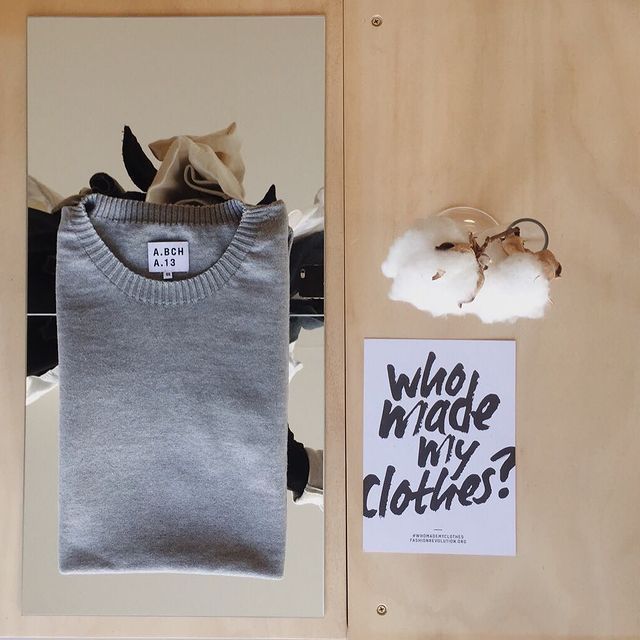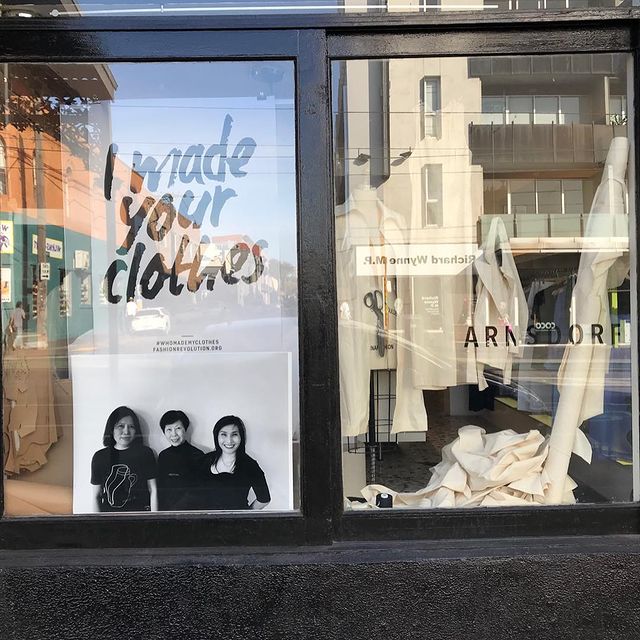# Who Made My Clothes?
This week is Fashion Revolution Week, marking the eighth anniversary of the Rana Plaza disaster. More than any other single event, the Rana Plaza disaster focused the eyes of the world on the unsafe and exploitative conditions of workers producing some of the globe’s best known brands. When the building that housed 5 garment factories collapsed on 24 April 2013 in Dakha, 1,138 garment workers, mostly women and girls, were killed at their jobs. More than 2,500 others were injured.
Brands involved in the collapse were owned by some of the wealthiest people in the world. Garments being produced at the factories at the time were being made for JC Penney, Benetton, Primark, Bonmarché, and Mango, amongst others. While a number of companies have contributed to compensation for the victims of the Rana Plaza disaster, many have not.
Since then, there have been more than 100 additional industrial accidents involving the deaths of garment workers due to unsafe working conditions.
More recently, it’s been revealed that slavery is being imposed on the Uyghur population of northern China to produce fashion items. Investigations are under way into fashion goods being made by slaves in forced labour camps in Xinjiang. Brands implicated include Nike, Uniqulo, Marks and Spencer, Abercrombie & Fitch, Esprit, H&M, Gap, and Puma. Other industries are also implicated including some of the world’s most successful companies such as Apple, Samsung, BMW and Amazon.
Yes, the cost of making clothes in Australia is more expensive than producing them overseas. But none of us wants anyone to die making clothes for them. For some, its worth the extra cost of clothes to buy from brands that are transparent and that can also show that their garments are made right here in Australia. For others, the reality can be a matter of affordability and trying to balance the budget. At least, organisations like Ethical Clothing Australia and Made in Australia provide info that allows consumers and fashion lovers to make a choice.

This week you can expect to see #whomademyclothes all over social media. More and more home-grown brands like A.BCH, Arnsdorf, JUDE and Solomon Street, including those not yet registered with either Ethical Clothing Australia or the Made in Australia initiative, are joining this hashtag campaign. Watch out for #Imadeyourclothes accompanied by photos of the designers and their teams.
To follow Fashion Revolution events this year you’ll want to tune into the following:
Britt’s List on Instagram on Monday 19 April (today) 6 pm AEST
Critical Fashion Studies on Instagram on Tuesday 20 April 6pm AEST
Julia Van Der Sommen Sample Room on Wednesday 21 April, 6pm AEST
Commemoration/Wreath Laying by the Textile, Clothing & Footwear Union on Friday April 23, 5.15 pm AEST at the Eight Hour Day Monument, Corner of Russel & Victoria St Melbourne
Featured Image: Jude Ng @designbyjude
See more about Australian made Fashion Labels.


